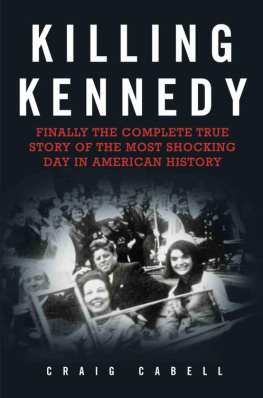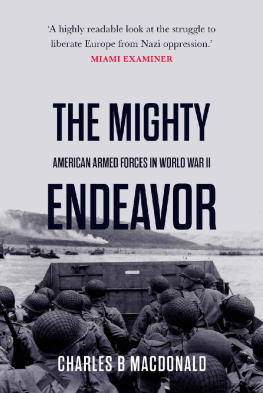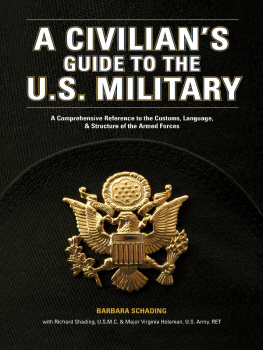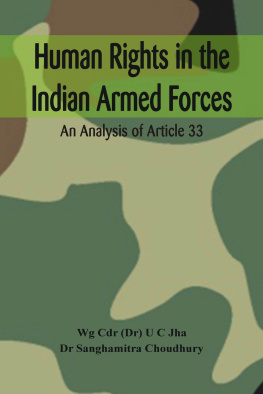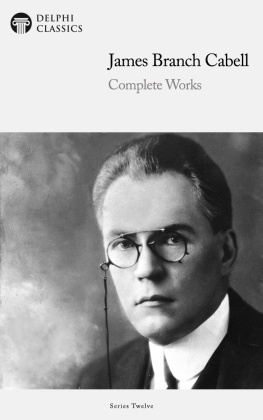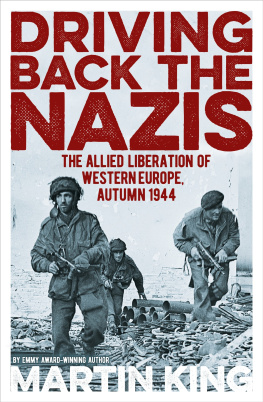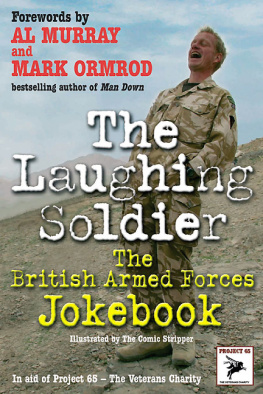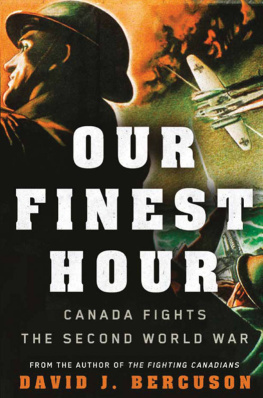

First published in Great Britain in 2005 by
Pen & Sword Military
an imprint of
Pen & Sword Books Ltd
47 Church Street
Barnsley
South Yorkshire
S70 2AS
Copyright Craig Cabell and Allan Richards, 2005
ISBN 1 84415 184 0
Digital Edition ISBN: 978 1 84468 341 3
The right of Craig Cabell and Allan Richards to be identified
as Authors of this Work has been asserted by them
in accordance with the Copyright, Designs and Patents Act 1988.
A CIP catalogue record for this book is
available from the British Library
All rights reserved. No part of this book may be reproduced or
transmitted in any form or by any means, electronic or mechanical
including photocopying, recording or by any information storage and
retrieval system, without permission from the Publisher in writing.
Typeset in 11/13 Sabon by
Phoenix Typesetting, Auldgirth, Dumfriesshire
Printed and bound in England by
CPI UK
Pen & Sword Books Ltd incorporates the Imprints of Pen & Sword
Aviation, Pen & Sword Maritime, Pen & Sword Military, Wharncliffe
Local History, Pen & Sword Select, Pen & Sword Military Classics and
Leo Cooper.
For a complete list of Pen & Sword titles please contact
PEN & SWORD BOOKS LIMITED
47 Church Street, Barnsley, South Yorkshire, S70 2AS, England
E-mail:
Website: www. pen-and-sword. co. uk
Acknowledgements
We would like to thank the following for their time, reference and support:
The Imperial War Museum, the Air Historical Branch, the British Legion, the Douglas Bader Foundation (especially Lady Bader and Keith Delderfield), Gladys Stewart of the Womens Royal Army Corp Association, the National Archives at Kew. Charles Carter of the Royal British Legion, Major Rodger Bain of the Armed Forces Careers Office, and Leroy Gittens of the West Indies Ex-Servicemens Association and Past Present Association The London Buffs.
Our heartfelt thanks are also due to: Simon Wiesenthal, Lord Janner of Braunstone, Sir Edward Heath, Frederick Forsyth, David L. Robbins, Raymond Baxter, John Cats Eyes Cunningham, Dennis Hurricane David, Angus Lennie and Ingrid Pitt.
Thanks are due to Shirley and Colin, Jean and Bernard, Anita, Samantha, Nathan and Fern, Mavis and Ian, Berny and Dave.
We would also like to thank the people who have contributed their memories to this book, some of whose stories have, unfortunately, had to be edited out. They are, in alphabetical order: Mabel (May) Violet Abbott, Florence Adams, Laura Adams, Rita Allen, Jack Baker, Marjorie Balcomba, John Banfield, Harold (Batch) Batchelder, James Bause, Gwen Borroff, Joyce Boulton, Molly Bradley, Lena Branch, Harry Brimble, Joy Bruce, Alan Brundish, Daphne Brundish, John Campbell, Marjorie Carmichael, Helen Carter, Patricia Carvell, Barbara Chatten, Michoalina Cichowicz, Ron Clayton, Margaret Cormack, Mavis Dow, Brian Eccleshall, William Edmonds, Nora Fallon, Mary Foreman, Doris Gaines, Florence Sarah Gatling, Matthew Gibb, Arthur Goodsell, Iris Grace Gorder, Austen Green, Beryl Green, Jean Hall, Peter Harding, Evelyn Harper, Ivor Harris, Margaret Harris, Elizabeth Hays, Kenneth Peter Herterich, Edward Huzzey, Kay Jennings, Edna Jones, Alf Kennedy, Edward Kindler, Geoff Kirk, Alice (Cato) Catherina Allison-Krafft, Winifred Lankford, Elsie Law, Bernard Ledwidge, Bill Lindsey, Cora Lovett, Evelyn Lucas, Alan Luckett, Margaret Luckett, Geoff Luvick, Marie (Molly) Marfleet, James (Jim) Mariner, Iris Marshall, Neville Marshall, Phillis McGinnis, Mary McKeown, Ruth OConnell, Irena Palmi, Mima Pannett, Owen Pannett, Henry Parker, Barbara Pettyfer, George Phillips, May Phillips, Norman Phillips, Bill Pinder, Eliane Plumer, Doris Porter, John Porter, Simone Porter, Sheila Puckle, Lilly Pye, Dora Rogers, Joan Rutland, Ron Seabrook, Marjorie Seelig, John Shilcock, Iris Smith, Margaret Smith, Roy Smith, Iris Spiers, Ruth Sproncz, Enid Stone, Betty Strickland, Thea Stride, Edward Szczepanik, Pelangie Throjanowska, Helen Thwaites, Jack Vaughan, May Vine, Norman Walls, David Wilson, Norman Wisdom, Evelyn Witt and Richard Yates.
In addition to those individuals who have contributed their memories, we would also like to express thanks to the staff at some residential homes. These include Elaine Ferris and the staff of Sunrise Assisted Living for efforts in organizing people to interview; Philomena Winterboer and the staff at Sheila Stead Home; Cheryl Fincham, Amelia Prodromou and the staff at Ashdene Home; Melanie Stewart and the staff at Ashglade Home; Alina Gaskin and the staff at the Antokol Polish Home and Kim Thomas, Chris Wisemen and the staff at the Nettlestead Home.
Sincerely, many thanks to you all.
Craig Cabell and Allan Richards
London, November 2004
Foreword
A Day to Remember by Frederick Forsyth
Even to say one recalls VE Day 8 May 1945 is a giveaway in the age department. One has to be over sixty!
Well, I remember it with great clarity. I was six years old, three months short of my seventh birthday in August. I was playing alone in my playroom at the top of the family house in Elwick Road, Ashford, Kent. It had seemed a spring day like any other: school, lessons, the bike ride home, the solitary wait until tea.
Then my mother was in the doorway, tears streaming down her face. The news of what had happened on Lneberg Heath that morning had just come through on the wireless.
Being too young to understand, I thought tears in a grown-up (as in a child) indicated pain and anguish. The idea of anyone crying from relief or joy was not within my understanding. So I just stared dumbly, a wooden Spitfire in my hand.
Then she ran across the floor, dropped to her knees, wrapped her arms round me and kept repeating: Its over, its over.
When you are six, being embraced by a blubbing Mum who starts talking nonsense is pretty unsettling stuff. What was over? Tea? I had not even had it. Then she increased the vocabulary. The war is over, she said. That made sense.
I took it pretty calmly. I could not recall a day when there was not a war. It started when I was thirteen months old before the onset of memory. And for me it was not all bad, not by a long chalk.
It meant a limitless collection of bits of shrapnel, shiny. 303 brass cases collected from the fields where they fell after being ejected from fighters overhead.
It meant being made a fuss of by the Polish soldiers manning the ack-ack battery on the waste ground across the road, without understanding that they had left small children behind in Warsaw to come and fight far away.
It meant priceless fragments of German equipment brought back from Europe by returning Tommies a belt buckle with Gott Mit Uns stamped on it; even a German shoulder flash. A chap could be a big hit at school with things like that.
It meant being able to march up and down the playground singing Hitler has only got one ball, Goebbels has two but very small... to the tune of Colonel Bogey, until the turkey-purple Miss Stock came running out to silence such language.
It meant the Odeon on Saturday morning with the Movietone Newsreel showing heroic scenes of men charging and tanks roaring through the Rhine mud as we all cheered while waiting for the Lone Ranger to come after the news.
There were the downsides. It meant rationed food and sweets but as I never knew them un-rationed, there was no contrast. It meant blocking all windows so that not a chink of light emerged after dark, although not a manned German bomber but only doodlebugs had been seen for months.
Next page

